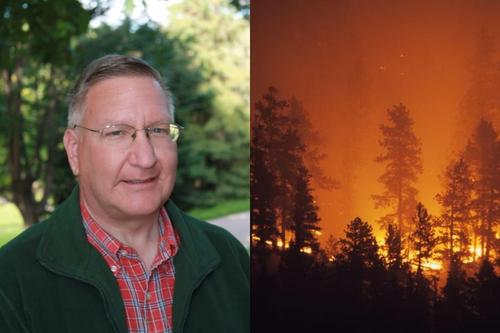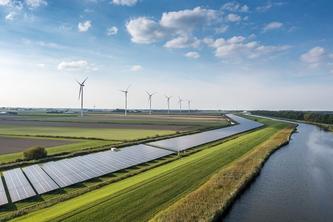
MINNEAPOLIS/ST. PAUL (03/08/2022) — Catastrophic wildfires are predicted to increase across the world, according to a recently released report from the United Nations Environment Program.
Earlier this year, the Biden Administration announced a new multi-billion dollar plan to address the nation’s growing wildfire crisis. Instead of focusing primarily on putting out fires, the new plan will significantly increase preventative controlled burns and vegetation thinning to reduce some of the fuel that fosters wildfire spread.
Director of the University of Minnesota Center for Forest Ecology Lee Frelich provides expert comment on the effectiveness of prescribed burns and explains how this strategy could make a difference going forward.
Lee Frelich, Ph.D.
“Very large acreages of forest were burned in the western U.S. each year prior to European settlement, which prevented excessive accumulation of fuels. For most of the 20th Century, it was thought that suppressing fires was helpful to minimize damage to the forest and human property. However, we now realize that this strategy has resulted in accumulation of heavy fuel loads that now support much more intense fires than during the pre-European era.”
“This fuel accumulation, combined with a warming climate, more severe droughts and longer fire seasons, is creating conditions in which very large and intense, uncontrollable fires roam across the landscape. These fires not only damage large old-growth trees, but combined with the recent expansion of the wildland-urban interface (WUI), with numerous homes in areas that are hard to defend during fires, create a situation in which large losses of property and life can occur.”
“Reducing fuel accumulations via thinning trees or prescribed fire treatments can help with the problem of ecological damage, property loss and public safety related to wildfires. However, even with the huge allocation of funds in President Biden’s plan, these treatments cannot be implemented at the scale needed to bring the entire landscape into balance with the new climate and fire regime. In my opinion such treatments should probably be concentrated near human habitations in the WUI, while wildfires are allowed to burn in more remote areas. Even if the plan is fully implemented, it will take decades to make a significant dent in the problem.”
Lee Frelich is the Director of the University of Minnesota Center for Forest Ecology in the College of Food, Agricultural and Natural Resource Sciences. He has authored 200 publications with 275 coauthors from 25 countries. He is listed among the top 1% of all scientists in the world (Ecology and Environment category) by the Web of Science. His research has been featured in the news media 500 times, including The New York Times, Newsweek and Washington Post. Current research interests include large-scale fire and wind, earthworm invasion, and climate change in temperate and boreal forests.
-30-
About the College of Food, Agricultural and Natural Resource Sciences
The University of Minnesota’s College of Food, Agricultural and Natural Resource Sciences (CFANS) strives to inspire minds, nourish people, and sustainably enhance the natural environment. CFANS has a legacy of innovation, bringing discoveries to life through science and educating the next generation of leaders. Every day, students, faculty, and researchers use science to address the grand challenges of the world today and in the future. CFANS offers an unparalleled expanse of experiential learning opportunities for students and the community, with 12 academic departments, 10 research and outreach centers across the state, the Minnesota Landscape Arboretum, the Bell Museum of Natural History, and dozens of interdisciplinary centers.
About “Expert Alert”
University of Minnesota experts can provide commentary, insights and opinions on various news topics. Find selected experts on UMN’s Experts Guide or send requests to [email protected].
- Categories:
- Agriculture and Environment
- Forestry





